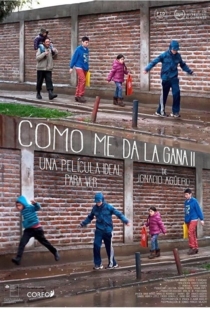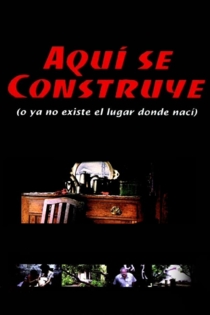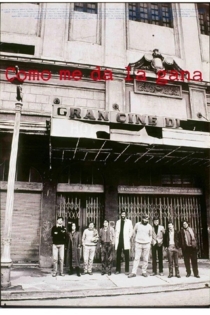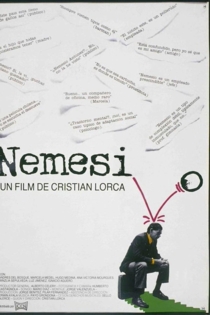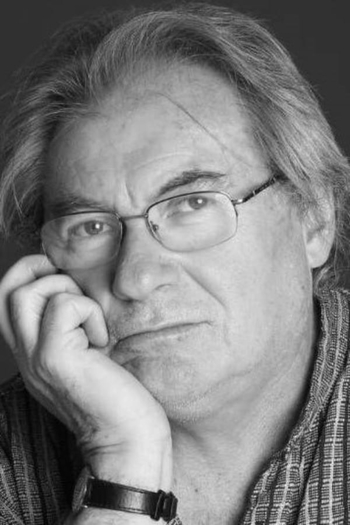
Ignacio Agüero
1952 (73 года)Although he has stood out for making independent documentaries, he has also worked as a producer, editor, cameraman, actor, and has been a judge in national and international competitions. In 1988 he participated as co-director and editor of "La Franja del NO", a television message in the campaign for the plebiscite that overthrew the dictatorship of Augusto Pinochet.
Parallel to his work as a filmmaker, he has produced numerous works commissioned by television, both national and foreign. Among them, the most important ones: Neruda, all the love (1998), with script by Antonio Skármeta, filmed for Canal + Spain, and several chapters of the series Heredia & asociados, based on the stories of novelist Ramon Diaz Eterovic. From his production company Ignacio Agüero & Asociado, he produced the series Maldito corazón, about historical crimes in Chile, winner of the National Television Council contest and produced for Chilevisión in 2011.
No olvidar (1982), his initial film, touches on the theme of the so-called "Lonquén Ovens Massacre", committed in 1978 and discovered a few years later.
In 1988, Agüero made a documentary that made history, One Hundred Children Waiting for a Train. From misery and marginality, the film tells the innocent story of a group of children who travel from their town to the center of the city to attend a film session for the first time. It was awarded the First Prize for a Documentary at the 1988 Havana Film Festival, the year of its premiere.
In 1993 she premiered the documentary Dreams of Ice, which won the Grand Prize for Documentary at the Mannhein-Heidelberg Festival in 1994, and in 2000 her documentary Aquí se construye, first prize at the Docupolis Festival in Barcelona, and best national documentary at FIDOCS (Santiago de Chile) in 2001. In 2004 he made the documentary La mamá de mi abuela le contó a mi abuela.
Later he made the outstanding documentary El diario de Agustín (2008), about the active participation of the newspaper El Mercurio in the military coup and later in the consolidation of the military dictatorship. In 2011, he made a documentary about the building that currently houses the Gabriela Mistral Cultural Center, GAM (2001) and in 2012 he premiered his personal documentary El otro día, a film with Al that won the Altazor 2014 Award for documentary direction. This is the fourth Altazor obtained by Ignacio Agüero after the triumphs of 2005 with La mamá de mi abuela le contó a mi abuela, 2006 with Heredia y Asociados and 2009 with El diario de Agustín.
He has conducted numerous training workshops in Chile, Mexico, Barcelona, Bolivia, and has developed project tutorials in Mexico, Costa Rica, Buenos Aires, Nicaragua and Chile.
Ignacio Agüero is an associate professor at the Institute of Communication and Image (ICEI) of the Universidad de Chile and Coordinator of the Master's Degree in Documentary Film.
Sueños de hielo
Ignacio Agüero
In 1992 the Universal Exhibition in Seville was held in Spain. Chile participated in this exhibition by displaying in its pavilion an ice floe captured and brought especially by sea from Antarctica. In these true facts is based the fantasy narrated in Dreams of Ice. Filmed between November 1991 and May 1992 on board the ships Galvarino, Aconcagua and Maullín, in a voyage that goes from Antarctica to Spain, in this documentary film in which dreams, myths and facts converge towards a poetic tale turned into a seafaring saga, in the manner of the legends of the seafarers that populate the mythology of the American continent and universal literature.
Dreams of Ice

Cien niños esperando un tren
Ignacio Agüero
Alicia Vega
Tells the story of a group of Chilean children who discover a larger reality and a different world through the cinema. Each Saturday, Alicia Vega transforms the chapel of Lo Hermida into a film screening room as she conducts a workshop for children under the auspices of the Catholic church. The hundred or so children involved had never seen a movie, and in the workshop they see and learn about the cinema: photograms and moving images, projection, camera angles and movement, film genres, and much more. And they watch movies: Chaplin, Disney, Lamorisse's 'The Red Balloon,' the Lumieres' 'The Arrival of the Train to the Station.' Finally, each child designs his own film with drawings. And then, for the first time in most of their lives, the children got to the movies in downtown Santiago.
One Hundred Children Waiting for a Train
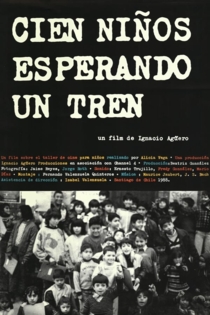
Cofralandes, rapsodia Chilena
Raúl Ruiz
Raúl Ruiz, Bernard Pautrat
An experimental four-part 2002 Franco-Chilean digital video series written and directed by Raúl Ruiz. The first part won a FIPRESCI Award at the Montreal World Film Festival in 2002 "for the director's personal exploration into his homeland, using DV in a rigorous yet playful manner".
Cofralandes, Chilean Rhapsody
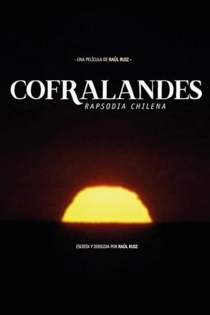
La Recta Provincia
Raúl Ruiz
Bélgica Castro, Ignacio Agüero
This was a man. He lived with his mother. He cared a manor house in the countryside of Chile. One day the man found a bone in the garden. The bone was bored. That was a bone flute. The man with the flute music play. And music song became. The voice of the song begging to seek the other bones of his scattered body. The man and his mother were in those ways of God and hell, looking for the bones that make up the skeleton of that Christian. And give him a Christian burial. And they saw what they saw, they lived what they lived. Many stories lived. And although they did not tell anyone, others told them.
La Recta Provincia
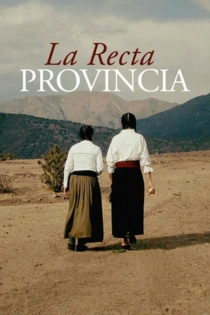
La lección de pintura
Pablo Perelman
Daniel Giménez Cacho, Verónica Sánchez
In Chile, during the 60´s, the son of a poor single teenage girl turns out to be a gifted painter. The man to discover his talent is the owner of the drugstore that lies in the outskirts of the small rural town, next to the railroad. He himself is an amateur painter who will try to make the boy into a great artist, like all the ones in his art books. From the pharmacists point of view in his old age, unfolds the story of this young boy who could have become a great art genius, had he not disappeared at the age of 13, along with all his works, on September 11th 1973, the day of the coupe d´état.
The Painting Lesson
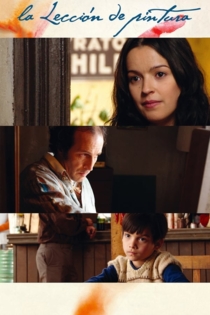
Tendida mirando las estrellas
Andrés Racz
Paulina Urrutia, Chamila Rodríguez
Nieves has murdered the man who was tried to rape his younger brother. Sentenced to five years in prison, she is immersed in a hard and marginal world, she does yearns to one day being released and fulfill her lifelong dream: to know the flowery desert in northern Chile. When an oversight of her captors allows her to flee, her dreams will have to wait still. She dedicates herself to managing a nightclub where her former jailmates prostitute themselves.
Tendida mirando las estrellas
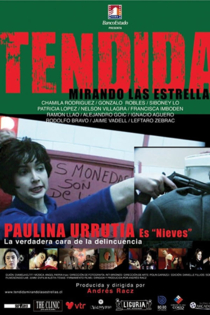
El otro día
Ignacio Agüero
Ignacio Agüero, Raúl Ruiz
The house of the director has a door out to the sidewalk. This gate separates the inside from the outside. The interior contains the filmmaker's personal story and his world of objects, thoughts and imaginations. Outer space contains the city of Santiago de Chile. The stories of the world inside the house are interrupted when the doorbell rings unknown and thus come into the film.
The Other Day
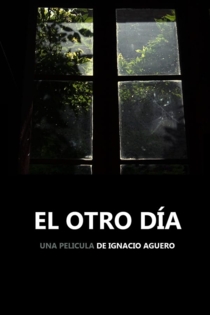
Días de campo
Raúl Ruiz
Marcial Edwards, Mario Montilles
In a bar in Santiago, two old men talk over their past. This is a strange discussion. In fact, they talk of themselves as if they were dead. We don't know what is true or false, what is dream or reality.
Days in the Country
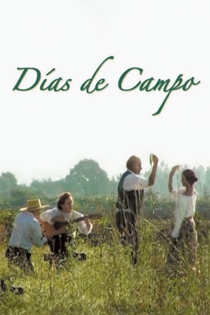
El Viento Sabe Que Vuelvo A Casa
José Luis Torres Leiva
Ignacio Agüero
Looking for extras and locations, a filmmaker settles on Chiloé, the second largest island off the coast of Chile. He does auditions, but mainly listens patiently to the stories of young and old people. As an outsider, he cautiously searches for the soul of the community and its underlying tensions.
The Winds Know That I'm Coming Back Home
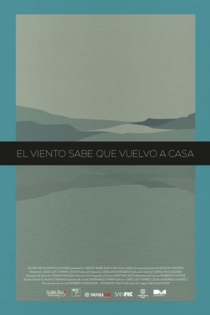
¿Qué historia es ésta y cuál es su final?
José Luis Torres Leiva
Ignacio Agüero, Sophie França
A prominent Chilean documentary director shares his family album with the film editor of his late works. A review of one hundred photographs and a quiet conversation will rise to memories of the films of one of the most personal filmmakers.
¿Qué historia es ésta y cuál es su final?
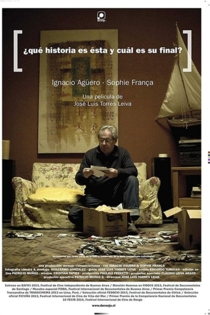
Aquí se construye
Ignacio Agüero
While a group of workers demolish a building in the Providencia district, the director of the documentary talks with a stucco worker, accompanying him to his house. The dialogue, which begins with an inquiry into his trade, reveals the frustration of the worker, whose meager salary prevents him from paying the money required to obtain the title deeds to his own house.
Aquí se construye
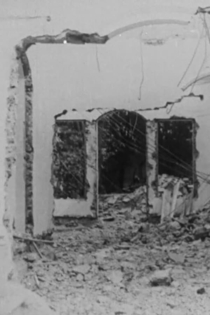
Como me da la gana II
Ignacio Agüero
Pablo Larraín, José Luis Torres Leiva
Just like in 1985, today Ignacio Agüero is back interrupting filmmakers during shooting, but not to ask what he did thirty years ago, but to find out what is purely cinematographic in what they film. These conversations are related to images in the director's personal archive, as if what is truly cinematographic was found among bits that were never made for the screen.
Como me da la gana II
